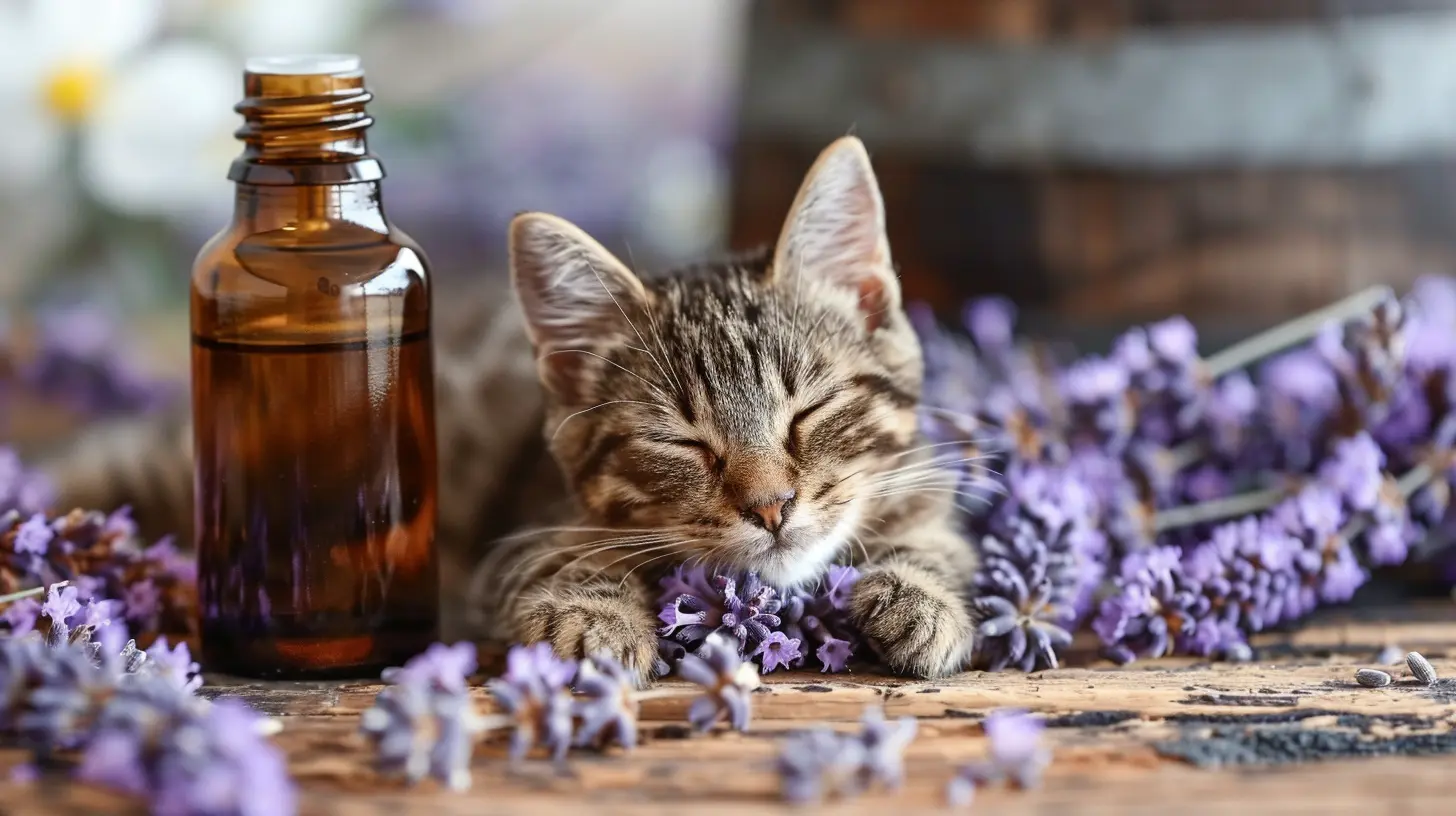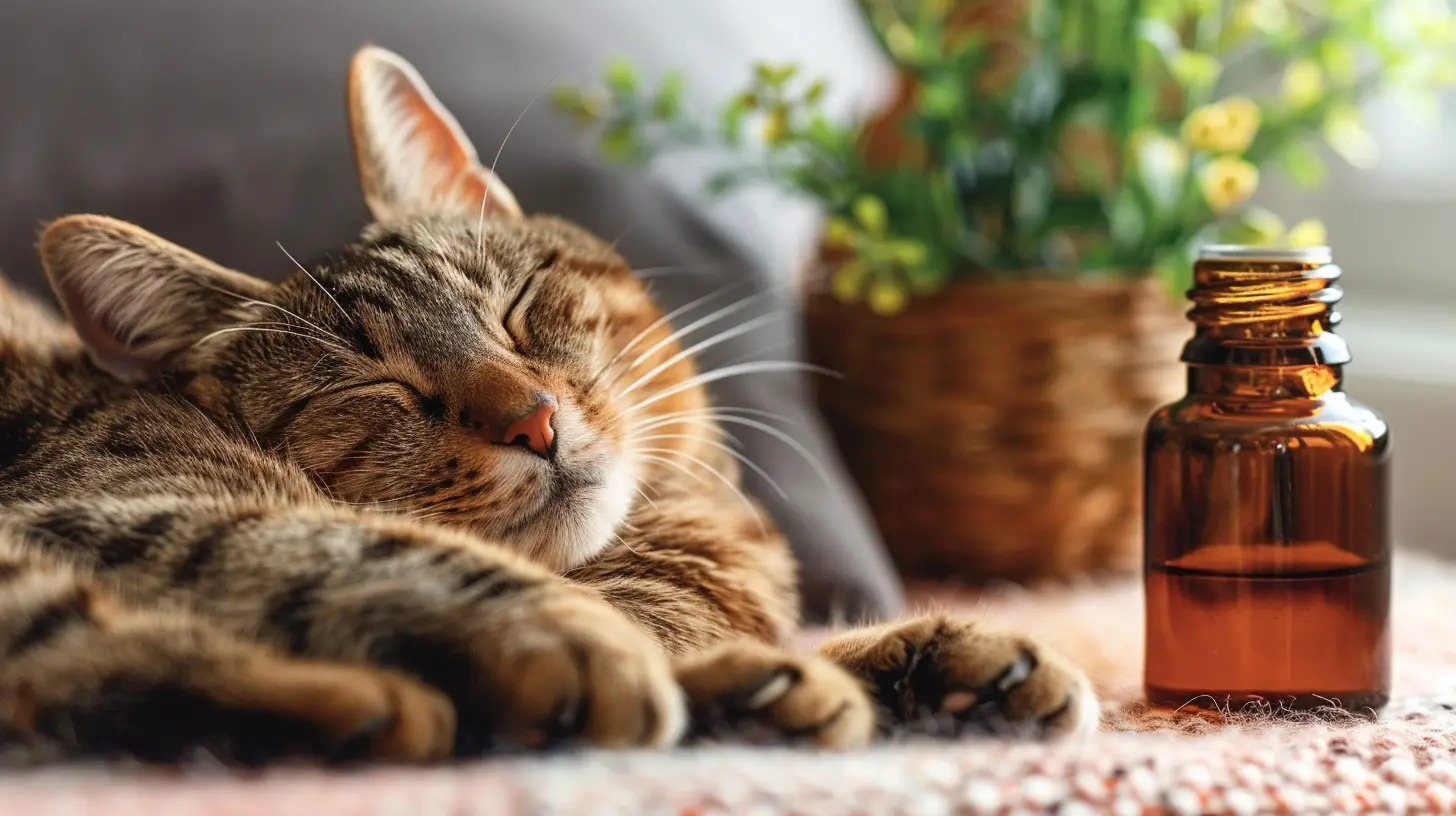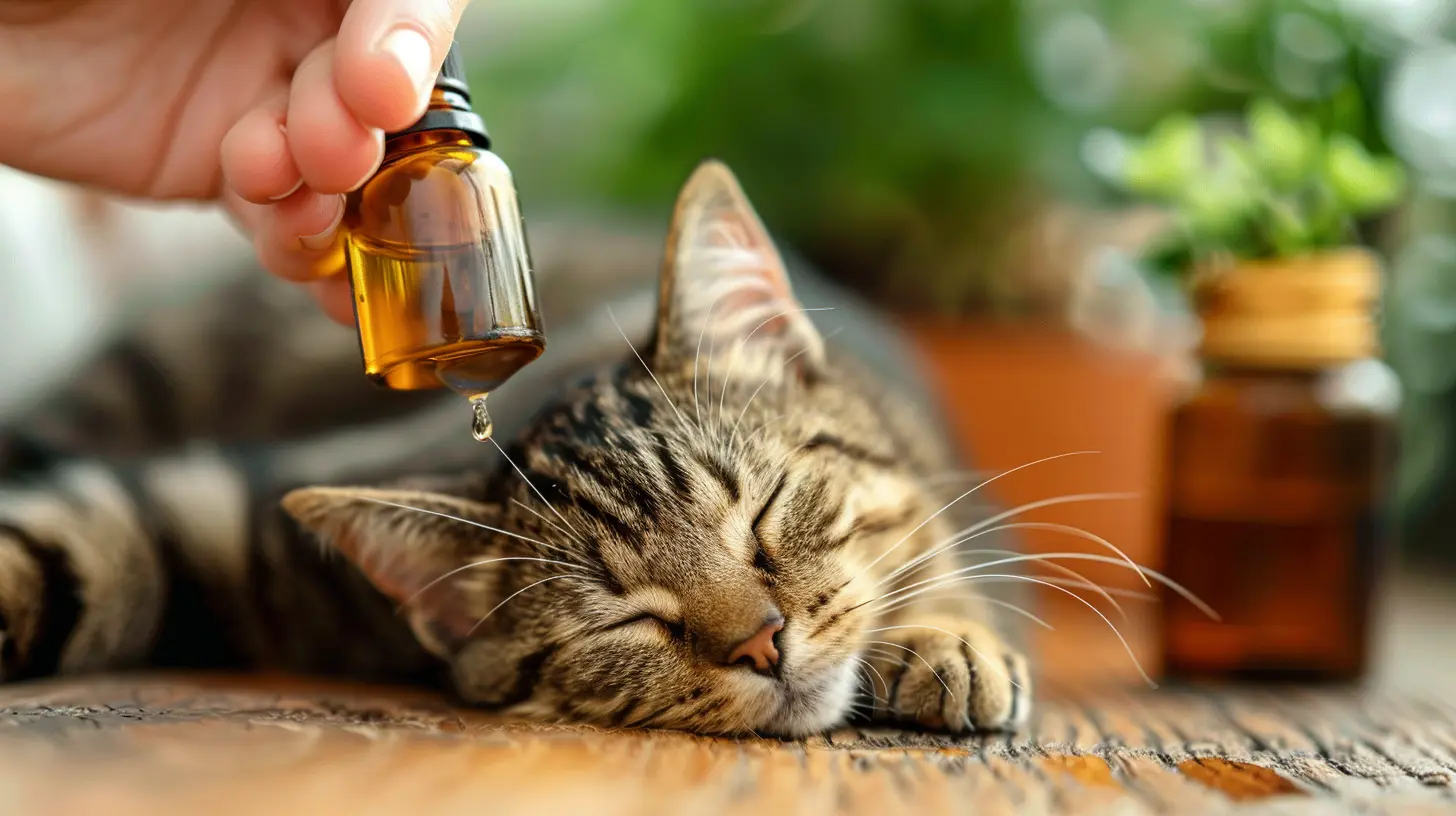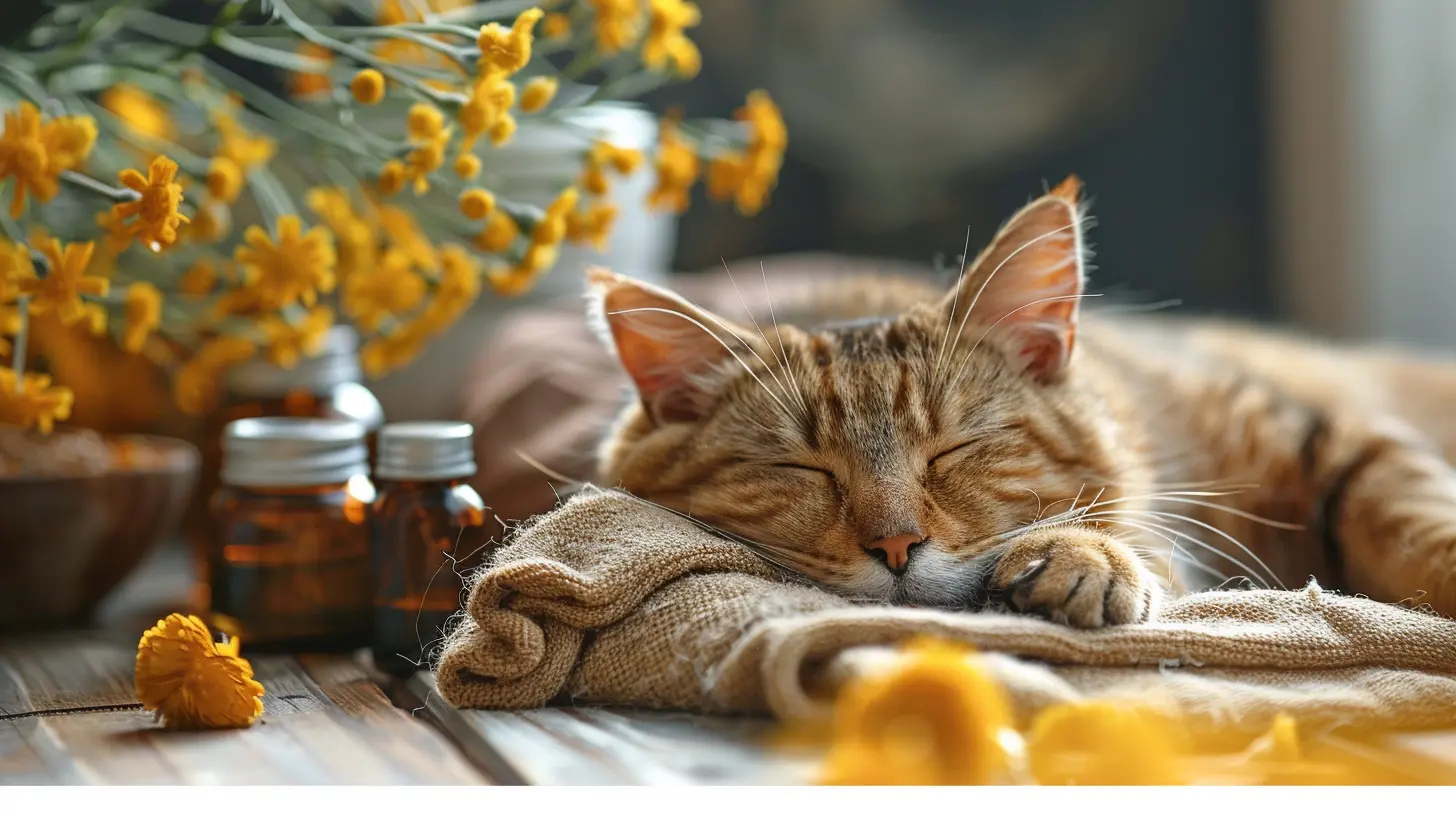Essential Oils for Pets: A Holistic Approach to Animal Care
26 August 2025
Pet owners are always looking for natural and safe ways to improve their furry friends' well-being. One of the growing trends in holistic pet care is the use of essential oils. These potent plant extracts offer numerous benefits, from soothing anxiety to repelling pests. But before you start diffusing lavender around your pup, it's important to understand how to use essential oils safely.
In this article, we'll dive into the benefits, risks, and best practices for using essential oils on pets. Whether you're a seasoned essential oil user or just getting started, this guide will help you make informed choices for your pet's health. 
What Are Essential Oils?
Essential oils are concentrated plant extracts that capture the natural essence, aroma, and benefits of a plant. They are commonly used in aromatherapy for humans, but their therapeutic properties extend to animals as well.These oils are typically extracted through steam distillation or cold pressing, producing potent liquid compounds that can provide healing, relaxation, and even antimicrobial effects. However, because they are so concentrated, a little goes a long way—especially when it comes to pets. 
Are Essential Oils Safe for Pets?
Yes—and no. While some essential oils are perfectly safe and beneficial for pets, others can be toxic and cause serious health problems. The key lies in proper selection, dilution, and application.Pets, especially cats and dogs, process substances differently than humans. Their metabolic systems are not designed to handle certain compounds found in essential oils. That's why knowing what’s safe and what’s not is crucial before introducing these oils into your pet’s routine. 
The Benefits of Essential Oils for Pets
When used correctly, essential oils can provide a range of benefits for pets:1. Calming Anxiety and Stress
Just like humans, pets can experience anxiety due to thunderstorms, separation, or travel. Essential oils like lavender and chamomile have natural calming effects and can help soothe their nerves.2. Repelling Fleas and Ticks
Many essential oils have natural insect-repelling properties. Cedarwood, lemongrass, and peppermint can deter fleas and ticks while keeping your pet smelling fresh.3. Easing Joint Pain and Inflammation
Senior pets often struggle with arthritis and joint stiffness. Frankincense and ginger essential oils may help reduce inflammation and provide pain relief when properly diluted and applied.4. Supporting Skin and Coat Health
Certain oils, like coconut-infused lavender or tea tree (only in extremely diluted amounts for dogs), can help with dry skin, hot spots, and minor wounds. However, always test a small area before applying to larger parts of your pet’s body.5. Boosting Immunity
Oils like myrrh and rosemary contain antimicrobial properties that may help strengthen your pet’s immune system, protecting them from infections and illnesses.
Essential Oils That Are Safe for Pets
While not all essential oils are safe, here are some that are generally considered pet-friendly when used in proper dilution:For Dogs:
- Lavender (calming, skin healing)- Chamomile (relaxation, anti-inflammatory)
- Frankincense (supports joint health, boosts immunity)
- Cedarwood (natural flea repellent)
- Ginger (aids digestion, reduces nausea)
For Cats:
- Cedarwood (pest repellent, safe in small amounts)- Chamomile (calming, supports skin health)
- Frankincense (immune support, anti-inflammatory)
Cats are more sensitive to essential oils than dogs due to their liver's inability to metabolize certain compounds. Always use oils in a highly diluted form and never use tea tree, citrus, or peppermint oils on cats, as they can be toxic.
Essential Oils That Are Toxic to Pets
Some essential oils should NEVER be used on or around pets as they can cause severe toxicity, respiratory distress, or liver damage.Toxic Essential Oils for Dogs and Cats:
- Tea Tree (toxic to cats & dangerous in high amounts for dogs)- Peppermint (can cause breathing issues)
- Eucalyptus (irritates airways, affects nervous system)
- Citrus Oils (orange, lemon, lime – toxic to cats)
- Pine (can cause vomiting and skin irritation)
- Cinnamon & Clove (can cause liver damage in pets)
If your pet is exposed to a toxic essential oil, immediately consult a veterinarian. Symptoms of toxicity include drooling, difficulty breathing, vomiting, or lethargy.
How to Safely Use Essential Oils on Pets
To ensure your pet gets all the benefits without the risks, follow these safety guidelines:1. Dilute, Dilute, Dilute!
Essential oils are highly concentrated, so always dilute them with a carrier oil (like coconut or olive oil) before applying them to your pet’s skin. A good ratio is one drop of essential oil per tablespoon of carrier oil.2. Use a Diffuser, Not Direct Application
Diffusing essential oils in a well-ventilated room is the safest way to introduce them to pets. Avoid applying oils directly on their skin unless recommended by a veterinarian.3. Observe Your Pet's Reaction
When first introducing an essential oil, start with a small amount and monitor your pet. If they sneeze, cough, or leave the room, it’s best to stop using that oil.4. Keep Essential Oils Out of Reach
Pets are naturally curious, and ingesting essential oils directly can be toxic or fatal. Store bottles in a secure location.5. Consult Your Veterinarian
Before using essential oils for health purposes, ask your vet for guidance—especially if your pet has pre-existing medical conditions.Simple Essential Oil DIY Recipes for Pets
Looking for easy ways to introduce essential oils to your pet? Here are some simple, pet-safe recipes:1. Calming Spray for Dogs
Ingredients:- 1 cup distilled water
- 2 drops lavender oil
- 1 drop chamomile oil
- 1 teaspoon coconut oil (as a carrier)
Instructions:
Mix all ingredients in a spray bottle. Lightly mist your dog's bed or collar for a calming effect.
2. Natural Flea Repellent for Pets
Ingredients:- 1 cup water
- 5 drops cedarwood oil
- 5 drops lemon eucalyptus oil (for dogs only)
- 1 teaspoon apple cider vinegar
Instructions:
Shake well and spray lightly on your pet’s fur (avoiding the face). Use before outdoor activities.
3. Paw Soother for Dry Pads
Ingredients:- 2 tablespoons coconut oil
- 1 drop lavender oil
- 1 drop frankincense oil
Instructions:
Gently massage onto dry or cracked paw pads for hydration and healing.
Final Thoughts
Essential oils can be a wonderful natural remedy for pets, offering relaxation, flea protection, and health benefits. However, safety is key—always dilute oils, use pet-friendly options, and observe your pet’s reaction.When used correctly, essential oils can support your pet’s well-being in a gentle and holistic way. But remember, every animal is unique, so what works for one pet may not work for another. When in doubt, always consult a vet before trying a new essential oil.
Your furry friend’s health is worth the extra care!
all images in this post were generated using AI tools
Category:
AromatherapyAuthor:

Sophia Wyatt
Discussion
rate this article
1 comments
Henry Blair
Thank you for this informative article on essential oils for pets! It's great to see a holistic approach to animal care being promoted. As always, it's important to consult with a veterinarian before incorporating new treatments, ensuring the safety and well-being of our beloved companions.
September 2, 2025 at 4:50 PM

Sophia Wyatt
Thank you for your thoughtful comment! I completely agree—consulting a veterinarian is crucial for keeping our pets safe and healthy.


